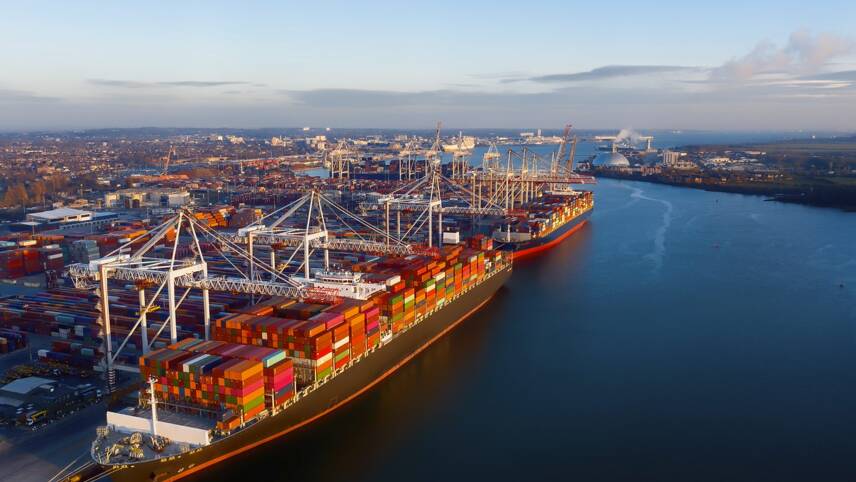Register for free and continue reading
Join our growing army of changemakers and get unlimited access to our premium content

Imported emissions are believed to account for more than 40% of the UK's total footprint
The call to action comes from the Environmental Audit Committee (EAC), which has today (4 April) published its report on ‘greening imports’. The report forms part of the Committee’s inquiry into carbon border adjustment mechanisms (CBAMs), which was first launched last September.
Under CBAMs, importers need to pay for the carbon generated in the manufacture of products, to the level that they would have if they produced the goods in the UK. CBAMs are often touted as a way to stop businesses from “offshoring” their emissions.
The EAC’s overarching recommendation is that the Government “immediately” begins work to develop a unilateral CBAM. It concludes that, while a multilateral CBAM would have a greater impact in terms of reducing emissions globally, it would take far longer to introduce, meaning the preferred course of action would be starting unilaterally and then expanding.
The urgency is partly down to the fact that the UK will continue to hold the COP presidency until November, which, the report argues, puts the UK in a strong position to encourage other nations to also introduce CBAMs. The EU notably reached an agreement on its own CBAM last month and pledged to bring the mechanism into effect from 2026.
Today’s EAC report acknowledges several key concerns that the Committee heard during its inquiry, the most prevalent being that a CBAM could force producers of high-carbon, imported products to pass additional costs on to consumers. This would have a negative impact on social sustainability, exacerbating the current cost of living crisis.
However, the EAC also heard that, if the CBAM was properly designed, it would incentivise the development of more low-carbon products – domestically and overseas. This would create economies of scale for these products. It could also boost the national economy by encouraging people to choose British-made products.
“Our Committee is clear that the pros of a CBAM outweigh the cons,” said EAC chairman Philip Dunne MP. “For too long the emissions from our consumption have effectively been ‘offshored’, leaving the problem as out of sight and out of mind. But we must all take greater responsibility for our consumption, and the practices that our businesses and organisations adopt.”
The UK Government does not currently include emissions associated from imported products in its carbon accounts. Organisations including WWF have advocated for a change of approach, given that the UK is a net importer and has gradually become less and less of a manufacturing economy, and more of a service-based economy, since the 2008 Climate Change Act was given assent.
Business and public engagement
Dunne added: “Our Committee is under no illusions that this will be a challenging policy to get right, with a clear advantage to moving multi-laterally with other trading partners, and therefore all businesses must have a voice in the discussions and the Government must be upfront with its intentions.”
The report cautions against a ‘one-size-fits-all’ approach and acknowledges that large businesses in hard-to-abate industrial sectors may need different treatment. It also acknowledges that importing SMEs may not need to be penalised to the same extent as larger businesses, and British MPs may need more support to engage suppliers from overseas on decarbonisation.
Some businesses in the UK are already vocally supporting a British CBAM. A report published earlier this year by the Aldersgate Group advocates in favour of the UK developing and launching a CBAM in alignment with the EU’s approach.
Aldersgate Group members include Cemex, Johnson Matthey and Siemens.
As well as engaging with businesses, the report compels the Government to develop a public communications scheme to “demystify” CBAMs for consumers – and to properly assess the potential impacts of a CBAM on vulnerable and low-income households. It advocates for collaboration between the Government and citizens groups as the mechanism is developed and communicated.

